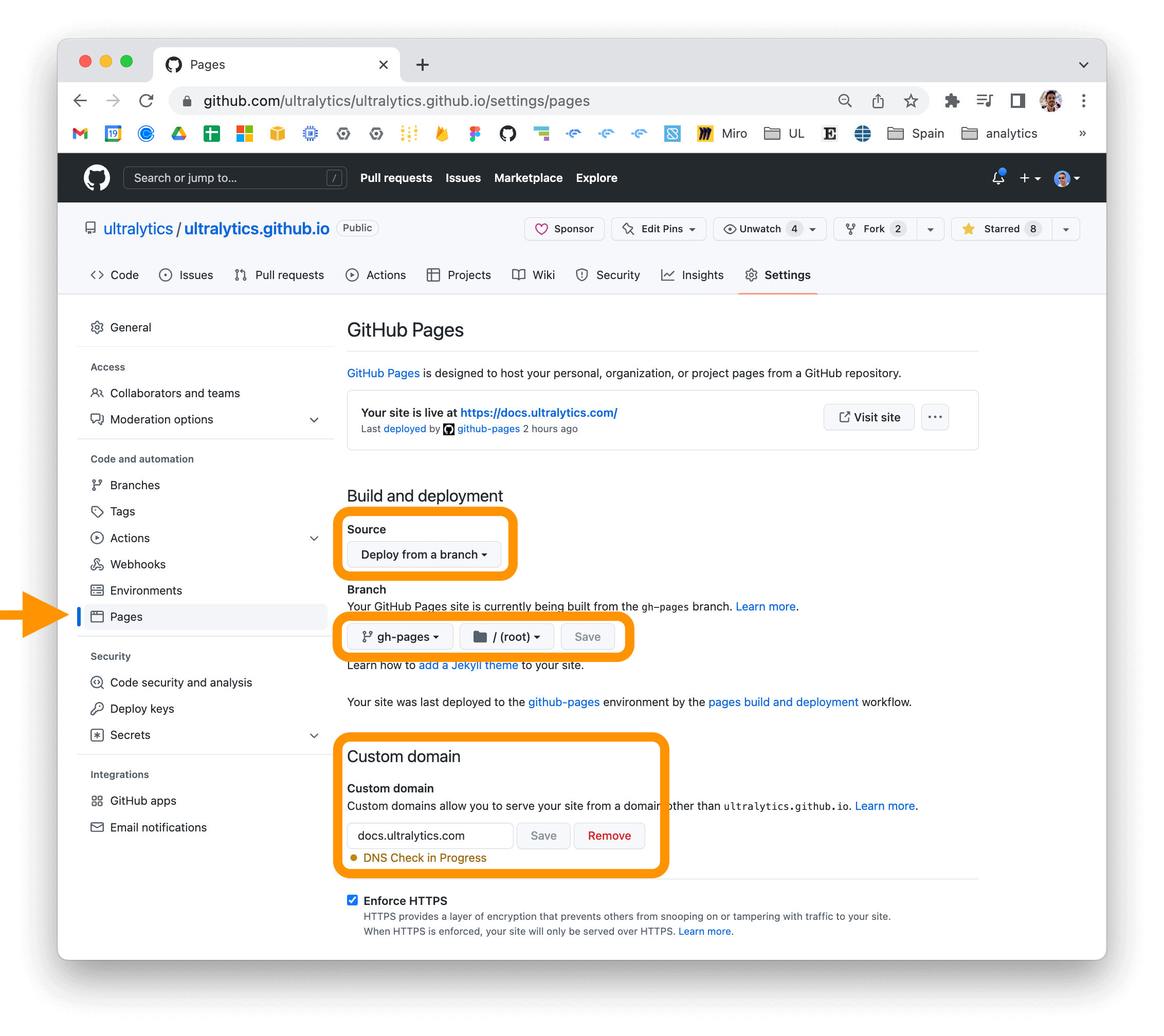📚 Ultralytics Docs
Ultralytics Docs are the gateway to understanding and utilizing our cutting-edge machine learning tools. These documents are deployed to https://docs.ultralytics.com for your convenience.
🛠️ Installation
To install the ultralytics package in developer mode, ensure you have Git and Python 3 installed on your system. Then, follow these steps:
-
Clone the ultralytics repository to your local machine using Git:
git clone https://github.com/ultralytics/ultralytics.git -
Navigate to the cloned repository's root directory:
cd ultralytics -
Install the package in developer mode using pip (or pip3 for Python 3):
pip install -e '.[dev]'
- This command installs the ultralytics package along with all development dependencies, allowing you to modify the package code and have the changes immediately reflected in your Python environment.
🚀 Building and Serving Locally
The mkdocs serve command builds and serves a local version of your MkDocs documentation, ideal for development and testing:
mkdocs serve-
Command Breakdown:
mkdocsis the main MkDocs command-line interface.serveis the subcommand to build and locally serve your documentation.
-
🧐 Note:
- Grasp changes to the docs in real-time as
mkdocs servesupports live reloading. - To stop the local server, press
CTRL+C.
- Grasp changes to the docs in real-time as
🌍 Building and Serving Multi-Language
Supporting multi-language documentation? Follow these steps:
-
Stage all new language *.md files with Git:
git add docs/**/*.md -f -
Build all languages to the
/sitefolder, ensuring relevant root-level files are present:# Clear existing /site directory rm -rf site # Loop through each language config file and build mkdocs build -f docs/mkdocs.yml for file in docs/mkdocs_*.yml; do echo "Building MkDocs site with $file" mkdocs build -f "$file" done -
To preview your site, initiate a simple HTTP server:
cd site python -m http.server # Open in your preferred browser
- 🖥️ Access the live site at
http://localhost:8000.
📤 Deploying Your Documentation Site
Choose a hosting provider and deployment method for your MkDocs documentation:
-
Configure
mkdocs.ymlwith deployment settings. -
Use
mkdocs deployto build and deploy your site. -
GitHub Pages Deployment Example:
mkdocs gh-deploy -
Update the "Custom domain" in your repository's settings for a personalized URL.

- For detailed deployment guidance, consult the MkDocs documentation.
💡 Contribute
We cherish the community's input as it drives Ultralytics open-source initiatives. Dive into the Contributing Guide and share your thoughts via our Survey. A heartfelt thank you 🙏 to each contributor!

📜 License
Ultralytics Docs presents two licensing options:
- AGPL-3.0 License: Perfect for academia and open collaboration. Details are in the LICENSE file.
- Enterprise License: Tailored for commercial usage, offering a seamless blend of Ultralytics technology in your products. Learn more at Ultralytics Licensing.
✉️ Contact
For bug reports and feature requests, navigate to GitHub Issues. Engage with peers and the Ultralytics team on Discord for enriching conversations!













